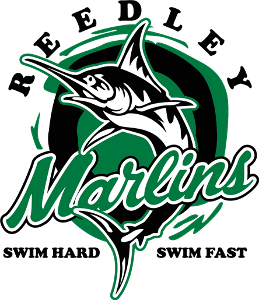What Is a Concussion?
A concussion is a type of traumatic brain injury—or TBI—caused by a bump, blow, or jolt to the head or by a hit to the body that causes the head and brain to move rapidly back and forth. This sudden movement can cause the brain to bounce around or twist in the skull, creating chemical changes in the brain and sometimes stretching and damaging brain cells.
Concussions Are Serious
Medical providers may describe a concussion as a “mild” brain injury because concussions are usually not life-threatening. Even so, the effects of a concussion can be serious.
Concussion Signs and Symptoms
Children and teens who show or report one or more of the signs and symptoms listed below, or simply say they just “don’t feel right” after a bump, blow, or jolt to the head or body, may have a concussion or more serious brain injury.
- Can’t recall events prior to or after a hit or fall.
- Appears dazed or stunned.
- Forgets an instruction, is confused about an assignment or position, or is unsure of the game, score, or opponent.
- Moves clumsily.
- Answers questions slowly.
- Loses consciousness (even briefly).
- Shows mood, behavior, or personality changes.
- Headache or “pressure” in head.
- Nausea or vomiting.
- Balance problems or dizziness, or double or blurry vision.
- Bothered by light or noise.
- Feeling sluggish, hazy, foggy, or groggy.
- Confusion, or concentration or memory problems.
- Just not “feeling right,” or “feeling down”.
Signs and symptoms generally show up soon after the injury. However, you may not know how serious the injury is at first and some symptoms may not show up for hours or days. For example, in the first few minutes your child or teen might be a little confused or a bit dazed, but an hour later your child might not be able to remember how he or she got hurt.
You should continue to check for signs of concussion right after the injury and a few days after the injury. If your child or teen’s concussion signs or symptoms get worse, you should take him or her to the emergency department right away.
Responding to a Concussion and Action Plan for Coaches
A child or teen with a concussion needs to be seen by a medical provider. If you think your child or teen has a concussion, contact his or her health care professional.
Remove From Play
If the concussion happens while playing sports, you should also:
- Remove the child from play.
- Keep the child out of play the day of the injury and until a medical provider, experienced in evaluating for concussion, says he or she is symptom-free and it’s OK to return to play.
Children or teens who return to play too soon—while the brain is still healing—risk a greater chance of having a repeat concussion. Repeat or later concussions can be very serious. They can cause permanent brain damage, affecting your child for a lifetime.
Seek Medical Care
Most kids and teens who have a concussion are treated in the emergency department or a medical office and get to go home. Through telemedicine or telehealth services, patients may get checked for concussion symptoms and get recovery tips without needing to travel to a medical office or hospital. You may consider using telemedicine or telehealth services if you are unable to visit a healthcare provider in person. Telemedicine and telehealth services connect patients and their healthcare providers through a phone or video chat. Your healthcare provider can identify whether these services are available to you.
Patients experiencing concussion danger signs should seek care right away at an emergency department. When the injury is more serious, your child or teen may need to stay in the hospital overnight.
WHAT TO TELL THE MEDICAL PROVIDER
Be sure to tell the medical provider if your child or teen is taking medications—prescription, over-the-counter medicines, or “natural remedies.” When possible, also write down and share the following information:
- Cause of the injury and force of the hit or blow to the head or body
- Any loss of consciousness (passed out/knocked out) and if so, for how long
- Any memory loss right after the injury
- Any seizures right after the injury
- Number of previous concussions (if any)
TESTS FOR CONCUSSION & BRAIN INJURY
Your child or teen’s medical provider may do a scan of his or her brain (such as a CT scan) to look for signs of a more serious brain injury. Other tests such as “neuropsychological” or “neurocognitive” tests may also be performed. These tests help assess your child or teen’s learning and memory skills, the ability to pay attention or concentrate, and how quickly he or she can think and solve problems. These tests can help the child’s medical provider identify the effects of the concussion.
GET WRITTEN CONCUSSION CARE INSTRUCTIONS
Ask for written instructions from the young athlete’s health care provider on return to play. These instructions should include information about when they can return to play and what steps you should take to help them safely return to play. Before returning to play an athlete should:
- Be back to doing their regular school activities.
- Not have any symptoms from the injury when doing normal activities.
- Have the green-light from their health care provider to begin the return to play process.

